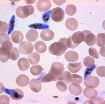(Press-News.org) The UK urgently needs a green economic strategy to move towards low-carbon prosperity, resource security and environmental quality, says a new report published today by UCL's Green Economy Policy Commission.
The Commission – drawn from a range of academic disciplines across UCL – argues that the UK's current situation of climate instability and increasing resource constraints mean that decisive action is urgently needed by the UK government to green the economy.
Greening the Recovery argues that there is a window of opportunity for policies that acknowledge future resource constraints and deliver more sustainable growth. Such policies will address fundamental structural weaknesses and achieve a sounder economic recovery. The report provides a comprehensive overview of the key elements of a green economy. It emphasises that a green economy is not about niche sectors, but about the whole economy. As well as identifying the major challenges for the UK, it makes a number of specific recommendations for policies to address these.
Professor Paul Ekins, Chair of the UCL Green Economy Policy Commission, said: "The recent floods and appalling weather conditions should remind policy makers of the dangers and risks of failing to take action to mitigate environmental threats. The report's recommendations are intended to enhance the UK's resource and environmental security, and contribute to the global imperative to reduce greenhouse gas emissions.
"In addition, the report suggests that, by taking action to green the economy, the UK can address existing weaknesses in innovation and infrastructure investment, positioning itself to be an international leader in eco-innovation, and building a resilient economy with the conditions for sustained and long-term growth. We hope that policymakers and politicians will recognise the urgent need to act and will show the policy leadership that the UK needs to commit to a greener economy."
Greening the Recovery identifies innovation, infrastructure and information as the key areas in which policies are needed to support a green economy, in addition to arguing for environmental fiscal reform and specific policies at UK and EU level to support resource efficiency.
The report's keynote findings are:
There is currently a window of opportunity to put the UK economy decisively on a trajectory towards low-carbon prosperity, resource security and environmental quality: resource costs are low, the added benefits of stimulating directed investment are large, and structural reform is required in any case;
A green economy strategy can strengthen the UK economy by overcoming key structural weaknesses, particularly under-investment in infrastructure and under-performance in innovation. A credible, long-term strategy, supported by environmental tax reform, can thus deliver a more durable recovery while contributing to climate stability, resource security and better environmental quality.
Government should take a more proactive, strategic approach to driving green innovation. A green industrial strategy can help to address existing weaknesses in the UK innovation system and secure comparative advantage in key sectors and areas of technology – the UK still has the opportunity to be a leader in many of these areas, but other countries are already seizing the initiative;
Government should adopt a clearer approach to prioritisation of key infrastructure projects, and ensure that infrastructure investments are compatible with long-term green economy objectives. Going beyond the undifferentiated infrastructure list in the UK Infrastructure Plan, the Government needs to identify what green infrastructure investments are required and prioritise these accordingly in order to ensure policy clarity and credibility;
A new information infrastructure is required to enable a greener economy. Our national accounting practices and corporate reporting rules were developed at a time when the economic and social importance of environmental constraints was less well recognised than it is today. Government should introduce new efforts to develop comprehensive natural capital and material flow accounts.
INFORMATION:
1. For more information, advance copies of the full report and/or executive summary, or to interview Professor Ekins, please contact Ruth Howells in the UCL Media Relations Office on mobile: +44 (0)7790 675 947, email: ruth.howells@ucl.ac.uk
2. A UCLTV video about the commission is available here: http://bit.ly/1cE7kVI
3. The full report and executive summary will be available from 00.01 on 24 February 2014 here: https://www.ucl.ac.uk/public-policy/Policy_Commissions/GEPC/GEPCreport
About The UCL Green Economy Policy Commission
The commission brought together a diverse group of academics from disciplines – including economics, the built environment, engineering, political science, innovation, and resource efficiency – to use their expertise to address the pressing policy challenges of moving to a green economy. It was chaired by Professor Paul Ekins (UCL Institute for Sustainable Resources) and a full list of commission members can be found here: https://www.ucl.ac.uk/public-policy/Policy_Commissions/GEPC.
The UCL Green Economy Policy Commission was supported by UCL Public Policy, which seeks to bring UCL's academic expertise to bear on pressing public policy challenges by integrating knowledge and evidence from across disciplines to inform policy: http://www.ucl.ac.uk/public-policy
About UCL (University College London)
Founded in 1826, UCL was the first English university established after Oxford and Cambridge, the first to admit students regardless of race, class, religion or gender and the first to provide systematic teaching of law, architecture and medicine.
We are among the world's top universities, as reflected by our performance in a range of international rankings and tables. According to the Thomson Scientific Citation Index, UCL is the second most highly cited European university and the 15th most highly cited in the world.
UCL has nearly 27,000 students from 150 countries and more than 9,000 employees, of whom one third are from outside the UK. The university is based in Bloomsbury in the heart of London, but also has two international campuses – UCL Australia and UCL Qatar. Our annual income is more than £800 million.
http://www.ucl.ac.uk | Follow us on Twitter @uclnews | Watch our YouTube channel YouTube.com/UCLTV
Policies to green the economy must underpin UK recovery: New report
Floods illustrate the need for urgent action from government to green the economic recovery, in order to address climate change and wider environment and resource issues, says UCL Commission Chair
2014-02-24
ELSE PRESS RELEASES FROM THIS DATE:
Mysterious polio-like illness found in 5 California children
2014-02-23
PHILADELPHIA – Researchers have identified a polio-like syndrome in a cluster of children from California over a one-year period, according to a case report released today that will be presented at the American Academy of Neurology's 66th Annual Meeting in Philadelphia, April 26 to May 3, 2014.
"Although poliovirus has been eradicated from most of the globe, other viruses can also injure the spine, leading to a polio-like syndrome," said case report author Keith Van Haren, MD, with Stanford University in Palo Alto, Calif., and a member of the American Academy of Neurology. ...
Scientists transform skin cells into functioning liver cells
2014-02-23
SAN FRANCISCO, CA—February 23, 2014—The power of regenerative medicine now allows scientists to transform skin cells into cells that closely resemble heart cells, pancreas cells and even neurons. However, a method to generate cells that are fully mature—a crucial prerequisite for life-saving therapies—has proven far more difficult. But now, scientists at the Gladstone Institutes and the University of California, San Francisco (UCSF), have made an important breakthrough: they have discovered a way to transform skin cells into mature, fully functioning liver cells that flourish ...
Oldest bit of crust firms up idea of a cool early Earth
2014-02-23
MADISON, Wis. – With the help of a tiny fragment of zircon extracted from a remote rock outcrop in Australia, the picture of how our planet became habitable to life about 4.4 billion years ago is coming into sharper focus.
Writing today (Feb. 23, 2014) in the journal Nature Geoscience, an international team of researchers led by University of Wisconsin-Madison geoscience Professor John Valley reveals data that confirm the Earth's crust first formed at least 4.4 billion years ago, just 160 million years after the formation of our solar system. The work shows, Valley says, ...
Researchers have identified a novel immunological mechanism of great importance for vaccine developm
2014-02-23
Researchers have discovered the presence of a novel subtype of innate lymphoid cells in human spleen essential for the production of antibodies. This discovery, published in the prestigious journal Nature Immunology, clears the path to the identification of novel strategies to develop more efficient vaccines against encapsulated bacteria, considered highly virulent.
This work was done by the B cell Biology research group at IMIM (Institut Hospital del Mar d'Investigacions Mediques) in Barcelona, directed by Dr. Andrea Cerutti, ICREA research professor and leader in the ...
A key protein is discovered as essential for malaria parasite transmission to mosquitos
2014-02-23
Two teams have independently discovered that a single regulatory protein acts as the master genetic switch that triggers the development of male and female sexual forms (termed gametocytes) of the malaria parasite, solving a long-standing mystery in parasite biology with important implications for human health. The protein, AP2-G, is necessary for activating a set of genes that initiate the development of gametocytes -- the only forms that are infectious to mosquitos. The research also gives important clues for identifying the underlying mechanisms that control this developmental ...
Stream of stars in Andromeda satellite galaxy shows cosmic collision
2014-02-23
The Andromeda Galaxy is surrounded by a swarm of small satellite galaxies. Researchers from the Niels Bohr Institute, among others, have detected a stream of stars in one of the Andromeda Galaxy's outer satellite galaxies, a dwarf galaxy called Andromeda II. The movement of the stars tells us that what we are observing is the remnant of a merger between two dwarf galaxies. Mergers between galaxies of such low mass has not been observed before. The results are published in the scientific journal, Nature.
The galaxies in the early universe started off small and the theory ...
Researchers pinpoint brain region essential for social memory
2014-02-23
NEW YORK, NY (February 23, 2014) — Columbia University Medical Center (CUMC) researchers have determined that a small region of the hippocampus known as CA2 is essential for social memory, the ability of an animal to recognize another of the same species. A better grasp of the function of CA2 could prove useful in understanding and treating disorders characterized by altered social behaviors, such as autism, schizophrenia, and bipolar disorder. The findings, made in mice, were published today in the online edition of Nature.
Scientists have long understood that the hippocampus—a ...
Nanoparticles target anti-inflammatory drugs where needed
2014-02-23
Researchers at the University of Illinois at Chicago have developed a system for precisely delivering anti-inflammatory drugs to immune cells gone out of control, while sparing their well-behaved counterparts. Their findings were published online Feb. 23 in Nature Nanotechnology.
The system uses nanoparticles made of tiny bits of protein designed to bind to unique receptors found only on neutrophils, a type of immune cell engaged in detrimental acute and chronic inflammatory responses.
In a normal immune response, neutrophils circulating in the blood respond to signals ...
Climate change won't reduce deaths in winter
2014-02-23
New research published today (Sunday 23rd February) has found that climate change is unlikely to reduce the UK's excess winter death rate as previously thought.
The study is published in the journal Nature Climate Change and debunks the widely held view that warmer winters will cut the number of deaths normally seen at the coldest time of year.
Analysing data from the past 60 years, researchers at the University of Exeter and University College London (UCL) looked at how the winter death rate has changed over time, and what factors influenced it.
They found that from ...
Scientists unlock a 'microbial Pompeii'
2014-02-23
An international team of researchers have discovered a 'microbial Pompeii' preserved on the teeth of skeletons around 1,000 years old. The key to the discovery is the dental calculus (plaque) which preserves bacteria and microscopic particles of food on the surfaces of teeth, effectively creating a mineral tomb for microbiomes.
The research team discovered that the ancient human oral cavity carries numerous opportunistic pathogens and that periodontal disease is caused by the same bacteria today as in the past, despite major changes in human diet and hygiene.
The researchers ...
LAST 30 PRESS RELEASES:
High risk of readmission and death among heart failure patients
Code for Earth launches 2026 climate and weather data challenges
Three women named Britain’s Brightest Young Scientists, each winning ‘unrestricted’ £100,000 Blavatnik Awards prize
Have abortion-related laws affected broader access to maternal health care?
Do muscles remember being weak?
Do certain circulating small non-coding RNAs affect longevity?
How well are international guidelines followed for certain medications for high-risk pregnancies?
New blood test signals who is most likely to live longer, study finds
Global gaps in use of two life-saving antenatal treatments for premature babies, reveals worldwide analysis
Bug beats: caterpillars use complex rhythms to communicate with ants
High-risk patients account for 80% of post-surgery deaths
Celebrity dolphin of Venice doesn’t need special protection – except from humans
Tulane study reveals key differences in long-term brain effects of COVID-19 and flu
The long standing commercialization challenge of lithium batteries, often called the dream battery, has been solved.
New method to remove toxic PFAS chemicals from water
The nanozymes hypothesis of the origin of life (on Earth) proposed
Microalgae-derived biochar enables fast, low-cost detection of hydrogen peroxide
Researchers highlight promise of biochar composites for sustainable 3D printing
Machine learning helps design low-cost biochar to fight phosphorus pollution in lakes
Urine tests confirm alcohol consumption in wild African chimpanzees
Barshop Institute to receive up to $38 million from ARPA-H, anchoring UT San Antonio as a national leader in aging and healthy longevity science
Anion-cation synergistic additives solve the "performance triangle" problem in zinc-iodine batteries
Ancient diets reveal surprising survival strategies in prehistoric Poland
Pre-pregnancy parental overweight/obesity linked to next generation’s heightened fatty liver disease risk
Obstructive sleep apnoea may cost UK + US economies billions in lost productivity
Guidelines set new playbook for pediatric clinical trial reporting
Adolescent cannabis use may follow the same pattern as alcohol use
Lifespan-extending treatments increase variation in age at time of death
From ancient myths to ‘Indo-manga’: Artists in the Global South are reframing the comic
Putting some ‘muscle’ into material design
[Press-News.org] Policies to green the economy must underpin UK recovery: New reportFloods illustrate the need for urgent action from government to green the economic recovery, in order to address climate change and wider environment and resource issues, says UCL Commission Chair


